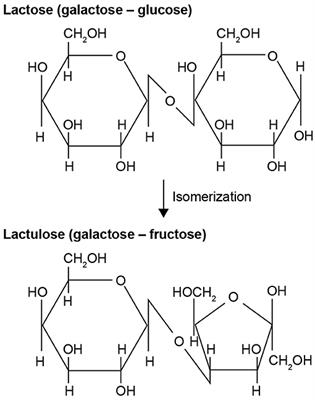Hi Peatarians, I have a doubt. Ray Peat has said clearly that the less gut flora you have, the better you will be.
So I started reading and found some really interesting thing that doesn't fit in this paradigm. The thing is Lactulose: it's a non-absorbable sugar, meaning that only bacteria will feed it. So, it's a prebiotic, but a special one: it only feeds the gram-positive bacteria. The interesting part of the storie starts here:
"Lactulose is a non-absorbable sugar used in the treatment of constipation and hepatic encephalopathy."
How is it possible that something that is bad for you can treat you of hepatic encephalopathy?
And the way that it treats hepatic encephalopathy is LOWERING AMMONIA. Here we go:
"Lactulose is useful in treating hyperammonemia (high blood ammonia), which can lead to hepatic encephalopathy. Lactulose helps trap the ammonia (NH3) in the colon and bind to it.[15] It does this by using gut flora to acidify the colon, transforming the freely diffusible ammonia into ammonium (NH+
4) which can no longer diffuse back into the blood.[16] It is also useful for preventing hyperammonemia caused as a side effect of administration of valproic acid."
So, basically Lactulosa feed the gram-positive bacteria and they resolve the ammonia problem. And we have here, my friends, it's a fact: the type of bacteria we have in our bodies can influence a lot of metabolic process.
What do you think about it? Has anybody experienced with Laculose?
So I started reading and found some really interesting thing that doesn't fit in this paradigm. The thing is Lactulose: it's a non-absorbable sugar, meaning that only bacteria will feed it. So, it's a prebiotic, but a special one: it only feeds the gram-positive bacteria. The interesting part of the storie starts here:
"Lactulose is a non-absorbable sugar used in the treatment of constipation and hepatic encephalopathy."
How is it possible that something that is bad for you can treat you of hepatic encephalopathy?
And the way that it treats hepatic encephalopathy is LOWERING AMMONIA. Here we go:
"Lactulose is useful in treating hyperammonemia (high blood ammonia), which can lead to hepatic encephalopathy. Lactulose helps trap the ammonia (NH3) in the colon and bind to it.[15] It does this by using gut flora to acidify the colon, transforming the freely diffusible ammonia into ammonium (NH+
4) which can no longer diffuse back into the blood.[16] It is also useful for preventing hyperammonemia caused as a side effect of administration of valproic acid."
So, basically Lactulosa feed the gram-positive bacteria and they resolve the ammonia problem. And we have here, my friends, it's a fact: the type of bacteria we have in our bodies can influence a lot of metabolic process.
What do you think about it? Has anybody experienced with Laculose?

